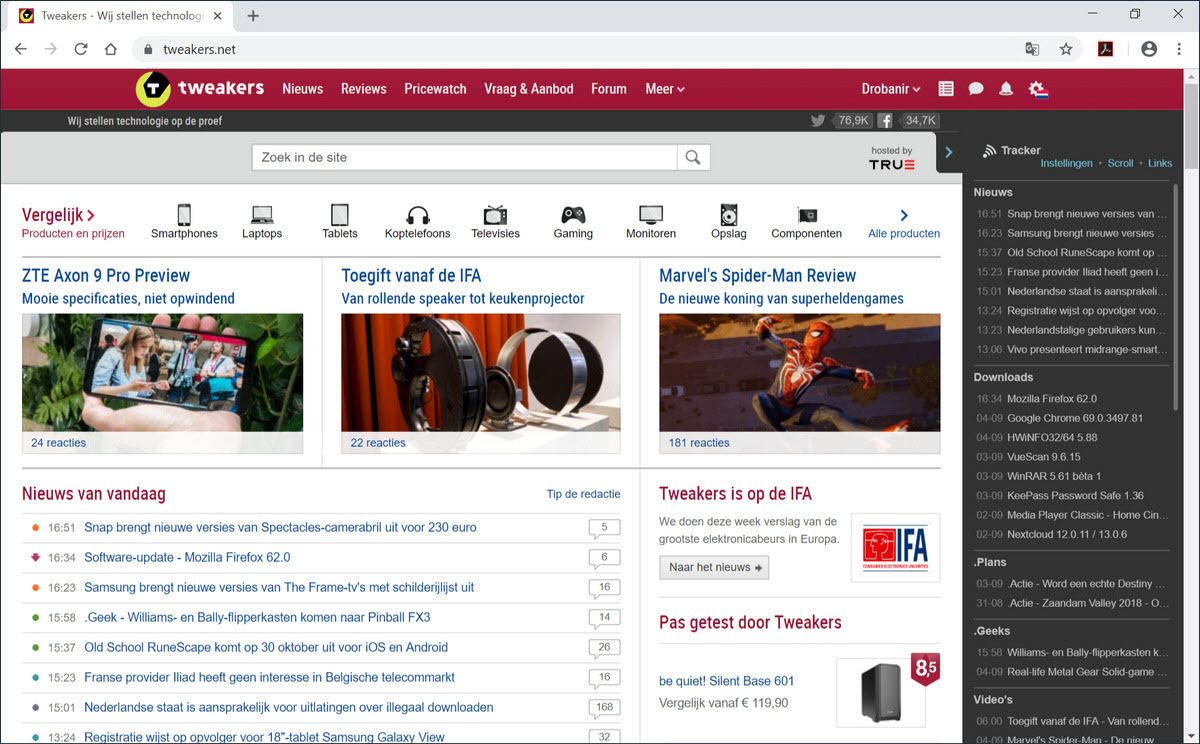 Google heeft versie 115 van zijn webbrowser Chrome uitgebracht. Google Chrome is beschikbaar voor Windows, Linux en macOS. Er zijn ook versies voor Android en iOS, maar die volgen een iets ander releaseschema. In versie 115 treffen we onder meer topics-api aan, een controversiële manier om gebruikers te volgen en specifieke advertenties te tonen. Meer informatie over de veranderingen die in deze uitgave zijn aangebracht, naast de gebruikelijke bug- en securityfixes, kan bij How-to Geek worden gevonden.
Google heeft versie 115 van zijn webbrowser Chrome uitgebracht. Google Chrome is beschikbaar voor Windows, Linux en macOS. Er zijn ook versies voor Android en iOS, maar die volgen een iets ander releaseschema. In versie 115 treffen we onder meer topics-api aan, een controversiële manier om gebruikers te volgen en specifieke advertenties te tonen. Meer informatie over de veranderingen die in deze uitgave zijn aangebracht, naast de gebruikelijke bug- en securityfixes, kan bij How-to Geek worden gevonden.
Google Chrome 115 Is HereThe main change in this release is the full rollout of the Topics API and related technologies, also known as the “Privacy Sandbox” project. The Topics API is Google’s intended replacement for cross-site tracking cookies, which aims to be more secure, but still involves tracking you across the web for targeted advertisements. The main difference is that cookies sent much of your browsing history straight to advertising networks, but with the Topics API, the Chrome browser itself analyzes your browsing history and profile and sorts you into a somewhat-generalized categories (e.g. “cats” or “tennis”), which ads can then use.
Google first attempt at replacing cookies with “Privacy Sandbox” was back in August 2019, with a technology called Federated Learning of Cohorts, or FLoC for short. It wasn’t too different from the Topics API now rolling out in Chrome 114, except that the categories were far more specific, to the point where they could be easily used for “fingerprinting” specific users across sites. FLoC was extensively criticized by the Electronic Frontier Foundation, DuckDuckGo recommended blocking the feature, and most other browsers were not interested in implementing it. Google reworked its proposal into the Topics API in January 2022, which has been in limited testing for the past few months. The same functionality is also in development for Android.
Even though the Topics API appears to be less terrible than the earlier FLoC proposal, it’s still ultimately a way to track your behavior online through your web browser and provide that data to any site or ad network that requests it. Back in January, Google rejected calls from the World Wide Consortium (W3C) to redesign the API. Apple officially rejected it for use in the Safari web browser last year, saying in a GitHub thread, “We don’t think cross-site targeting of ads should be on by default as a web platform feature.” Mozilla is also not planning to implement the Topics API, with a representative saying, “our belief is that this is more likely to reduce the usefulness of the information for advertisers than it provides meaningful protection for privacy.” It’s unclear how which web browsers based on Chrome will keep the Topics API.
Chrome 115 has a few other new features, but they are locked behind a feature flag for now. The experimental features include “HTTPS Upgrades” to automatically replace all HTTP navigations with HTTPS where possible, scroll-driven animations for web pages, and a Shared Storage API that reduces the need for cookies to store data across sites.


:fill(white):strip_exif()/i/2002189289.jpeg?f=thumbmedium)